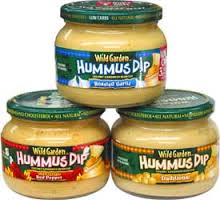The Mediterranean Diet continues to be considered one of the top choices for people concerned about their healthy. The diet consists of many food products from the Middle East and the Arab World.
A recent conclusion by major nutritional scientists (detailed below) suggests that the public needs to be more educated about their food choices.
Dana YogurtStudies show that the Mediterranean Diet can help lower your risks of developing cancer, such as breast cancer. The diet is far easier to follow today than it was decades ago, especially now with the growth of the Middle East and Arab world food market distribution in this country.
One of the key companies distributing Mediterranean Foods is suburban Chicagoland-based Ziyad Brothers Importing at www.Ziyad.com. In addition to providing a wide range of the basics of the Mediterranean Diet, including Sultan Extra 
The Hummus products include Hummus Tahini Chick Pea dip in the can, and also a shelf-stable Wild Garden Hummus which comes in a variety of flavors in jars. Wild Garden Hummus can be found on the shelves of major mainstream retailers and ethnic retailers across the country, and is especially popular as a snack box item on many of the nation’s commercial airlines.

If you are looking for recipes using Mediterranean products, visit ZBI’s online recipe database by clicking here.
Non-Profit Produces First-Ever Agreement on Overall Principles of Healthy Eating
Over 75 of the world’s top nutrition scientists, medical experts and media members convened yesterday at Finding Common Ground—a summit organized by food and nutrition non-profit Oldways, to reach consensus on what Americans should be eating. Their recommendations included strong support for the 2015 Dietary Guidelines Advisory Committee report, sustainability of our food systems, and greater food literacy.
Despite diverging dietary philosophies ranging from vegan to Paleo and Mediterranean to low-fat, the scientists found eleven points of agreement. Scientific co-chairs Dr. Walter Willett, Nutrition Chair of the Harvard School of Public Health and Dr. David Katz, Founding Director of the Yale Prevention Research Center, led the group in a two-day debate dissecting scientific studies and comparing diets to arrive at a clear outline of what healthy eating entails, agreeing on standards and sources of evidence, and the need to base judgments on the weight of evidence.
The first point of agreement addressed specific dietary attributes. “I find it rather remarkable that we achieved as much consensus as we did,” said Dr. Willett. “The foods that define a healthy diet include abundant fruits, vegetables, nuts, whole grains, legumes and minimal amounts of refined starch, sugar and red meat, especially keeping processed red meat intake low. When you put it all together, that’s a lot of common ground.”
The scientists, from the US, Canada and Europe, also agreed that foods should be sourced in a way that is sustainable for the health of both humans and the planet. “Coming up with an optimal eating plan for us, without worrying about our kids and grandkids, doesn’t make any sense,” said Dr. Katz. “We simply cannot discuss health guidelines without including sustainability in that conversation.”
The group also voiced support for widespread food literacy: understanding the origins of food, the conditions under which it is produced, and its impact on health. The participants agreed that knowledge of and respect for the cultural context of food—health through heritage—could be a powerful motivator for better eating.
The inclusion of food literacy was especially important to Oldways, creators of the Mediterranean Diet Pyramid, whose mission has long included a focus on traditional diets, supported by a wide range of heritage-based educational programs designed to motivate better eating.
To support the goals of the consensus and facilitate accurate and in-depth nutrition coverage, Oldways President Sara Baer-Sinnott unveiled the organization’s future programming for Common Ground. Plans include the Oldways Media Clearinghouse, which will connect journalists with nutrition scientists, providing greater resources for science-based stories, and a partnership with the True Health Initiative, a coalition of health experts headed by Dr. Katz, committed to education on the proven principles of lifestyle as medicine.
For the complete Oldways Finding Common Ground consensus document and a list of participating scientists, go to oldwayspt.org/commonground.
About Oldways
Oldways (www.oldwayspt.org) is a non-profit food and nutrition education organization, with a mission to inspire healthy eating through cultural food traditions and lifestyles. Simply, Oldways advocates for the healthful pleasures of real food. Oldways’ programs include the Whole Grains Council; Oldways Cheese Coalition; Mediterranean Foods Alliance; African Heritage & Health; Oldways Nutrition Exchange; Oldways Supermarket Dietitian Symposium; and Oldways Culinary Travel. The organization is well-known for creating the Whole Grain Stamp and the Mediterranean Diet Pyramid.


- Israelisnipers shooting and killing hospital workers in Gaza - December 11, 2023
- CAIR Condemns Israeli Executions of Wounded, Unarmed Palestinian in West Bank - December 11, 2023
- Arab and Muslim American voters face a “simple choice” between Biden’s inhumanity and Trump’s edgy politics - December 9, 2023






















